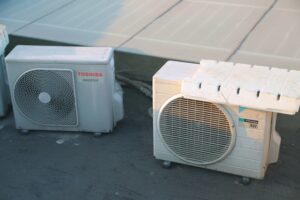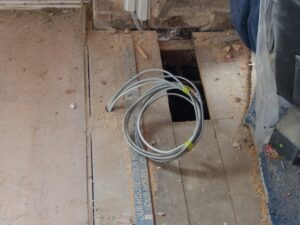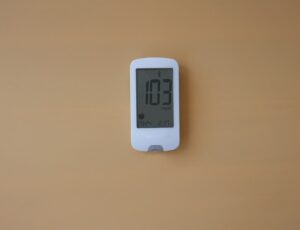Have you been considering a tankless water heater for your home or business?
These efficient systems are becoming a popular choice for good reason.
Tankless water heaters provide significant energy efficiency benefits, reducing your utility bills while delivering a continuous supply of hot water.
Unlike traditional models, tankless systems heat water on demand, so you never run out during a shower or while doing laundry.
Not only are these units energy-efficient, but they also have a longer lifespan, often lasting up to 20 years with proper maintenance. Imagine not needing to replace your water heater every 10 years—a tankless unit is a long-term, cost-effective investment.
Choosing the right system is essential, and that’s where Excel Mechanical comes in. We specialize in delivering tailored HVAC and plumbing solutions that fit both your budget and requirements.
With our commitment to exceptional quality and great value, you can trust us to help you select and install the perfect tankless water heater for your space. Experience the convenience and savings that come from upgrading to a modern, efficient heating solution.
In this blog, you will learn:
- How tankless water heaters work and why they’re energy-efficient
- The different types of tankless water heaters available
- The benefits of choosing a tankless water heater for your home or business
Let’s get started!
Understanding Tankless Water Heaters
So, what exactly makes tankless water heaters so special?
If you’re used to traditional storage tank heaters, you might be wondering how a tankless system works.
These units offer an efficient and convenient hot water solution, and once you understand how they operate, you’ll see why they’re becoming a popular choice for homes and businesses alike.
How Tankless Water Heaters Work
Tankless water heaters operate using a heat exchanger that heats water directly as it flows through the unit.
When you turn on a hot water tap, cold water travels through a pipe into the heater. An electric element or a gas burner activates, heating the water almost instantly.
This means you won’t run out of hot water, provided the system can meet your demand.
Models vary based on fuel type, including electric, natural gas, and propane options.
Each type has unique installation requirements and efficiency levels, allowing you to select one that fits your specific needs and budget.
Types of Tankless Water Heaters
There are a few different types of tankless water heaters, and choosing the right one depends on your home’s needs.
Which one would work best for you?
Let’s break it down:
- Electric Tankless Water Heaters: These compact units are typically more affordable and easier to install, making them a great choice for smaller homes or apartments.
- Gas Tankless Water Heaters: These systems often provide higher flow rates, making them a better option for larger households or homes with higher hot water demands. Gas models usually require a bit more installation work, but they tend to be more powerful.
Benefits of Tankless Water Heaters
Why should you consider making the switch to a tankless water heater?
The benefits go beyond just energy savings.
Tankless systems offer several advantages that can improve your home’s efficiency and safety.
From saving space to reducing operating costs, these heaters are a smart investment that can enhance your daily life in more ways than one.
Let’s have a look!
Space Efficiency and Design Flexibility
Tankless water heaters require much less physical space compared to traditional storage tank models.
Without the bulky tank, you can install these units in smaller, less conventional areas, such as closets or under sinks. This design flexibility allows for a cleaner aesthetic in your home. You can optimize your layout without sacrificing functionality.
Therefore, if you’re limited in space, tankless systems could be the perfect solution.
Lower Operating Costs and Energy Savings
Who doesn’t want to save on utility bills?
Tankless water heaters are designed to be energy-efficient, using 24% to 34% less energy than traditional models when you use around 41 gallons of hot water per day.
Since these systems only heat water when you need it, there’s no wasted energy keeping a full tank of water hot around the clock.
Think about it: With a tankless water heater, you’re not paying to keep a large volume of water heated all day. The result? Lower energy costs and significant savings over time.
Reduced Risk of Water Damage and Increased Safety
Another major benefit of tankless systems is the reduced risk of water damage.
Traditional tank heaters can corrode over time, leading to leaks and potential flooding—imagine dealing with that mess.
With a tankless system, the risk of such damage is practically eliminated.
Not only do these units prevent water damage, but they also provide on-demand hot water, reducing the likelihood of scalding from prolonged exposure to heated water.
At Excel Mechanical, we make sure your installation is secure, ensuring your home and family stay safe.
Installation and Maintenance Considerations
So, you’ve decided a tankless water heater is right for you.
But what’s next?
Before jumping into installation, it’s essential to understand the considerations involved to ensure optimal performance and long-term savings.
From professional installation to maintenance needs, here’s everything you need to know.
Professional Installation and Costs
Why is professional installation so important?
Installing a tankless water heater isn’t a simple DIY project—it requires expertise to ensure the system operates efficiently.
While the initial costs may vary, hiring an experienced professional ensures that your unit is set up properly and will work smoothly for years to come.
Typically, the cost of installation can range around $2,500, depending on factors like the complexity of the installation and any necessary upgrades (like gas lines or electrical systems).
But here’s the thing: Isn’t it worth paying a bit more upfront to avoid potential issues down the road?
A qualified technician will meet local building codes, properly size the unit for your home, and ensure that everything functions optimally.
Maintenance Requirements and Hard Water Solution
While tankless water heaters require less maintenance than traditional tank models, they’re not entirely maintenance-free.
Regular maintenance, like descaling, is essential to keep your system running at peak performance.
Are you dealing with hard water in your area?
If so, mineral buildup can clog the heat exchanger and reduce efficiency over time.
To address this, consider installing a water-softening system to prevent calcification.
Wouldn’t it be frustrating if your water heater started underperforming just because of something preventable?
Regular maintenance—like descaling and softening your water—can help prolong the life of your tankless water heater and keep your system efficient.
Excel Mechanical recommends scheduling annual maintenance to ensure your system stays in top condition.
Our team is here to help with all your HVAC and plumbing needs, providing tailored solutions that maximize your tankless system’s lifespan and energy efficiency.
Comparative Analysis with Traditional Water Heaters
If you’re still on the fence about switching to a tankless water heater, you might be wondering how it stacks up against traditional storage tank systems.
What makes tankless models stand out, and is the investment worth it?
Let’s take a closer look at the advantages, long-term savings, and lifespan of tankless systems compared to traditional units.
Advantages Over Storage Tank Water Heaters
What’s the biggest difference between tankless and traditional water heaters?
Tankless systems heat water on demand, meaning they don’t keep a whole tank of water heated all day. This leads to reduced energy consumption because there’s no need to waste energy maintaining a large tank of hot water.
Have you ever noticed your energy bills skyrocket after using hot water throughout the day?
With a tankless system, you’ll see significant savings over time.
Another advantage?
You’ll never run out of hot water.
Traditional storage tanks can run out of hot water during peak usage times—think about that last-minute shower before work when the water’s cold. That’s a thing of the past with tankless systems.
You’ll enjoy an endless supply of hot water whenever you need it.
Long-Term Savings and Life Expectancy
Tankless water heaters generally offer better long-term savings compared to traditional units.
How does that sound?
While the initial installation cost can be higher, the extended lifespan—often 20 years or more, compared to 10 to 15 years for storage tank heaters—can yield significant replacement cost savings.
This longer life expectancy combined with energy efficiency means you spend less on maintenance, repairs, and utilities. You can expect a tankless heater to have lower operational costs due to its efficiency in heating water only when required.
Consumer Considerations for Optimal Use
When choosing a tankless water heater, it’s important to consider your household’s specific needs.
How do you know which system will give you the best performance and efficiency?
The KEY is to understand your hot water usage and the features each model offers.
By taking a few important factors into account, you can ensure your tankless water heater serves you well for years to come.
Evaluating Home Hot Water Usage
Start by analyzing how much hot water your household uses.
How many people live in your home?
Do you have multiple bathrooms or appliances that require hot water simultaneously, like dishwashers and washing machines?
Understanding your daily hot water demand helps you determine the flow rate necessary for your system.
For larger households, you might need a higher capacity unit or multiple heaters placed in different areas of the home.
On the other hand, if your needs are more modest, a point-of-use tankless water heater—installed near a specific fixture—could be a perfect fit, saving you both space and money.
Have you ever wished you could have hot water just where you need it, without wasting energy heating an entire tank?
Point-of-use systems are ideal for small spaces or targeted usage, like a bathroom sink or a single shower.
Navigating Product Selection and Features
Choosing the right tankless model goes beyond just capacity and price.
What features matter most to you?
Start by looking for models with a high energy efficiency rating to reduce your utility bills over time. Look for reputable brands like Stiebel Eltron or Bosch, known for their durability and performance.
But it’s essential to pick a model that suits your household’s needs.
Do you need a unit that can handle multiple simultaneous water demands, or is a smaller one sufficient for your space?
Also, consider the unit’s BTU output and flow rate. These factors determine how much hot water the unit can deliver at once.
What happens if your heater can’t keep up?
You may experience reduced water pressure or inconsistent temperatures. By choosing the right flow rate for your needs, you can avoid these issues.
Lastly, think about your home’s power supply. Some tankless systems work better with certain electrical setups.
Have you considered whether you might need to upgrade your electrical system or gas lines to accommodate the new heater?
Make sure to partner with a professional installer, like Excel Mechanical, who can assess your home’s requirements and guide you to the best choice.




